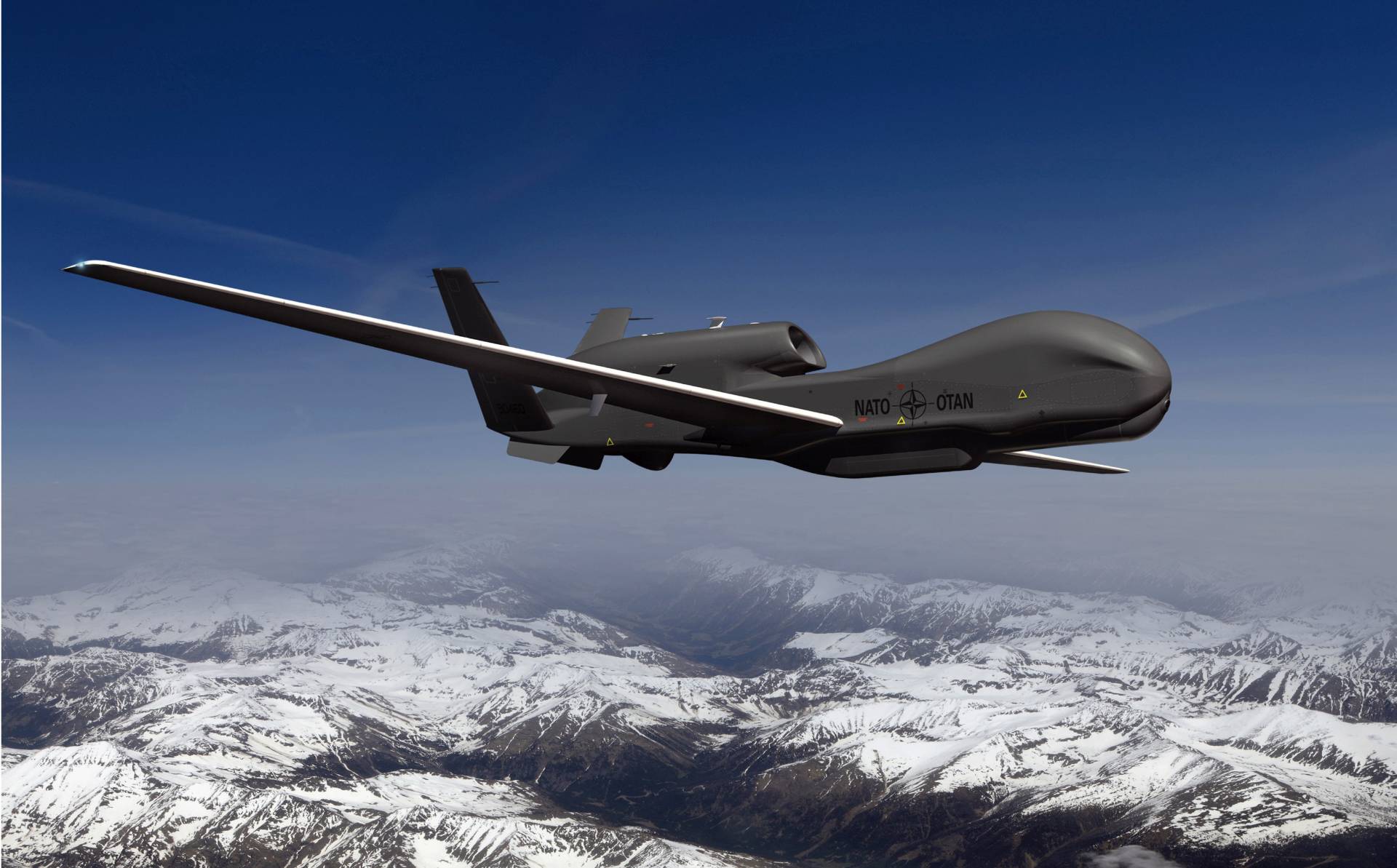Expanding NATO’s joint intelligence, surveillance and reconnaissance (ISR) capability, Northrop Grumman Corporation and its industry partners together with NATO leaders unveiled the first NATO Alliance Ground Surveillance (AGS) aircraft to an audience of customers, distinguished guests, employees and community leaders.
The unmanned aircraft, a wide-area surveillance Global Hawk, is part of a broader system of systems solution that will advance the Alliance’s evolving ISR needs during a full range of NATO’s missions such as protection of ground troops and civilian populations, border control and maritime safety, the fight against terrorism, crisis management and humanitarian assistance in natural disasters.
“This marks a significant step forward in achieving NATO’s goal of acquiring NATO-owned and operated AGS Core Capability,” said Erling Wang, chairman of the NATO AGS Management Organization (NAGSMO). “What you see here today is the result of one of the commitments made at the 2012 NATO Summit – to bring this advanced and critical persistent ISR capability to the Alliance to help ensure we can continue to address the range of challenges our member and other allied nations face.”
The NATO-owned and operated program comprises five air vehicles and fixed, mobile and transportable ground stations. Northrop Grumman’s primary industrial team includes Airbus Defence and Space (Germany), Selex ES (Italy) and Kongsberg (Norway), as well as leading defense companies from all participating countries.
The industries of the 15 participating nations (Bulgaria, Czech Republic, Denmark, Estonia, Germany, Italy, Latvia, Lithuania, Luxembourg, Norway, Poland, Romania, Slovakia, Slovenia and the United States), are each contributing to the delivery of the AGS system. All 28 Alliance nations will take part in the long-term support of the program.
“We are establishing the necessary ground stations, command and control systems, and training and logistics support services at the NATO AGS main operating base at Sigonella Air Base in Italy,” stated Jim Edge, general manager of the NATO AGS Management Agency.
With the ability to fly for up to 30 hours at a time, the high-altitude long-endurance system will provide NATO leaders with persistent global situational awareness. The aircraft is equipped with leading-edge technology, including the Multi-Platform Radar Technology Insertion Program (MP-RTIP) sensor. The MP-RTIP will provide critical data to commanders during operations in any weather, day or night. The NATO AGS system will also be able to fuse sensor data, continuously detect and track moving objects and provide detailed imagery.
“The level of collaboration required to bring together successfully so many international partners in the development of this tremendous system of systems capability for NATO speaks to the commitment and strength of the trans-Atlantic relationships we have built with our key partners, to deliver what is truly a European program,” said Janis Pamiljans, sector vice president and general manager, unmanned systems, Northrop Grumman Aerospace Systems.










